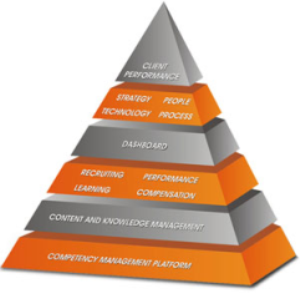By Ioannis Michaletos
The changing nature of everyday political, social and economic affairs, poses a great burden for professionals and experts alike. In a trial to detail what is important to keep an eye for and what can be discarded as no valuable information; knowledge management professes new angles and practical steps to overcome these issues.
In short, knowledge management is a set of tools and techniques that deal with quite a few aspects of management and most importantly the one of information and the means to analyze it, develop and coordinate it, in order to acquire knowledge and be able to share it with co-workers and team members and with the wider societal framework upon which we operate.
What is Knowledge Management?
It is the creation and subsequent management of an environment which encourages knowledge to be created, shared, learnt, enhanced, and organized for the benefit of the organization and its customers.
Basic literature
Allee, V. (1997) The Knowledge Evolution: Expanding Organizational Intelligence, Elsevier, ISBN 0-7506-9842-X.
Alberts, D. S., Garstka, J. J. and Stein, F. P. (1999) Network Centric Warfare: Developing and Leveraging Information Superiority. Newport, RI: CCRP.
Bell, D., The Coming of Post-Industrial Society, New York, Basic Books, 1973
Bronowski, Jacob, The Origins of Knowledge and Information (Yale University Press, 1978).
Buckman, R. H. (2004), Building a Knowledge-Driven Organization, McGraw Hill, ISBN 0-07-138471-5.
Callaghan, J. (2002), Inside Intranets & Extranets: Knowledge Management and the Struggle for Power, Palgrave Macmillan, ISBN 0-333-98743-8.
Cross, R. and Parker, A. (2004), The Hidden Power Of Social Networks, Harvard Business School Press, Boston, Mass, ISBN 1-59139-270-5.
Davenport, T. H. and Prusak, L. (1998) Working Knowledge: How Organizations Manage What They Know. Boston: Harvard Business School Press.
Dixon, N. (2000). Common Knowledge: How Companies Thrive by Sharing What They Know. Boston: Harvard Business School Press.
Drucker, Peter F., Managing for the Future: The 1990s and Beyond, (Truman Tally Books / Dutton, 1992).
Elias M Awad, Hassan M. Ghaziri, "Knowledge Management", Prentice Hall, 2004.
Iacocca Institute, 21st Century Manufacturing Enterprise Strategy, (Iacocca Institute, Lehigh University, 1991).
Lipnack, J. & Stamps, J. (2000). Virtual Teams: People Working Across Boundaries with Technology, 2nd ed. NY: Wiley.
Malhotra, Y. (2000), Knowledge Management and Virtual Organizations, Idea Group Publishing, Hershey, PA, ISBN 1-878289-73-X.
Novak, Joseph D. and Gowin, D. Bob Learning How to Learn (Cambridge University Press, 1984).
Pasher, E., The Intellectual Capital of the State of Israel: A Look to the Future – The Hidden Values of the Desert, Herzlia Pituach, Israel, 1999.
Polanyi, M. (1967), The Tacit Dimension, Doubleday, Garden City, NY, ISBN 0-385-06988-X.
Porter, Michael E., The Competitive Advantage of Nations, Free Press, NYC, 1990.
Prichard, C., Hull, R., Chumer, M. & Willmott, H. (Eds.). (2000). Managing Knowledge: Critical Investigations of Work and Learning. London: Macmillan Business, 2000.
Sveiby, K. E. (1997) The New Organizational Wealth. San Francisco: Berrett-Koehler.
Von Krogh, G., Roos, J. and Kleine, D. (eds) (1998) Knowing In Firms: Understanding, Managing and Measuring Knowledge. London: Sage.
Werry, M. W. (Ed.) (2000). Online Communities: Commerce, Community, Action, and the Virtual University. NY: Prentice Hall.
Wiig, Karl, M., A Knowledge Management Framework. Practical Approaches to Managing Knowledge, (Schema Press, 1994, ISBN 0-9638925-3-3)
Reliable and well-researched websites on the issue
BRINT Knowledge Portal
International Center for Applied Studies in Information Technology
http://www.icasit.org/km/links.htm
Knowledge Ecology by Community Intelligence Labs
http://www.KnowledgeEcology.com/
Knowledge Management Resource Center
KM World
Knowledge Management Magazine
Knowledge Board
http://www.knowledgeboard.com/
The Knowledge Management Forum
Electronic Journal of Knowledge Management
Knowledge Management in the Federal Government
Knowledge Management Professional Society
The Know Network
http://www.knowledgebusiness.com/
Journal of Knowledge Management
http://www.emeraldinsight.com/info/journals
Basic Knowledge Management terms
Best Practice: A process or methodology which has been identified inside or outside the organization and is recommended as a model.
Communities of Practice: AKA: affinity groups;
A) Informal networks and forums, where tips are exchanged and ideas generated. (7)
B) A group of professionals informally bound to one another through exposure to a common class of problems, common pursuit of solutions, and thereby themselves embodying a store of knowledge
Corporate memory: The collective tacit or explicit understanding of the people, process or products within an organization. Corporate Memory is strategically important, but it can also be a serious liability if it inhibits an organization from adjusting quickly to the changing environment.
Human Capital: the capabilities of the individuals required to provide solutions to customers
Information mining: Tools and techniques for finding and analyzing electronic textual information stores designed to identify trends and patterns within the data/information.
Intellectual Capital: refers to the commercial value of trademarks, licenses, brand names, formulations, and patents
Learning Organization: term popularized by Peter Senge's the Fifth Discipline meaning a corporate culture that cherishes continuous improvement.
Metadata or "data about data": Describes the content, quality, condition and other characteristics of data in order to facilitate efficient and effective searching of that data.
Rules of Thumb: shortcuts to solutions to new problems that resemble problems previously solved by experienced workers
Virtual organization: An organization without permanent facilities, e.g. building, and without many permanent employees. It relies on contractual relationships with suppliers, distributors and a contingent workforce
Virtual team: A team whose members are not co-located and who utilize electronic networks for communication, collaboration and work processes.



















